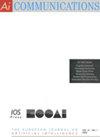约束的不完全论证框架:表达性、复杂性和执行力
IF 1
4区 计算机科学
Q4 COMPUTER SCIENCE, ARTIFICIAL INTELLIGENCE
引用次数: 0
摘要
像信念改变或合并这样的操作已经适应了抽象论证的背景。然而,这些操作可能需要在结果中表达一些不确定性或一些脱节,这在经典的AFs中是无法表示的。由于这个原因,一些早期的工作需要一组AFs或一组扩展作为操作的结果,以某种方式表示AFs或扩展的“分离”。与此同时,不完全AFs (IAFs)的概念最近也得到了发展。它对应于一些论据或攻击的存在可能是不确定的AFs。每个IAF都可以与一组称为完井的经典af相关联,它们对应于解决不确定性的不同方法。虽然这些iaf可能是AFs分离的紧凑表示的良好候选者,但我们证明该模型的表达能力不够。然后,我们引入了约束iaf,其中包括一个命题公式,允许选择用于推理的补全集。我们证明了该模型具有足够的表达能力,可以表示任何af集或任何扩展集。此外,我们还研究了与扩展验证和论证可接受性相关的各种决策问题的复杂性。虽然它们中的一些在多项式层次结构中要高一级(与标准iaf相比),但它们中的大多数具有与iaf相同的复杂性。最后,我们展示了CIAF可以用于建模一种新的扩展执行形式,其中考虑到AF的可能演变,并通过CIAF的完成进行建模。本文章由计算机程序翻译,如有差异,请以英文原文为准。
Constrained incomplete argumentation frameworks: Expressiveness, complexity and enforcement
Operations like belief change or merging have been adapted to the context of abstract argumentation. However, these operations may require to express some uncertainty or some disjunction in the result, which is not representable in classical AFs. For this reason, some of these earlier works requirea set of AFs or a set of extensions as the outcome of the operation, somehow to represent a “disjunction” of AFs or extensions. In parallel, the notion of Incomplete AFs (IAFs) has been developed recently. It corresponds to AFs where the existence of some arguments or attacks may be uncertain. Each IAF can be associated with a set of classical AFs called completions, that correspond to different ways of resolving the uncertainty. While these IAFs could be good candidates for a compact representation of a disjunction of AFs, we prove that this model is not expressive enough. Then we introduce Constrained IAFs, that include a propositional formula allowing to select the set of completions used for reasoning. We prove that this model is expressive enough for representing any set of AFs, or any set of extensions. Moreover, we study the complexity of various decision problems related to the verification of extensions and the acceptability of arguments. While some of them are one level higher in the polynomial hierarchy (compared to their counterpart with standard IAFs), most of them have the same complexity than in the case of IAFs. Finally, we show that CIAFs can be used to model a new form of extension enforcement, where the possible evolutions of an AF are taken into account and modeled by the completions of the CIAF.
求助全文
通过发布文献求助,成功后即可免费获取论文全文。
去求助
来源期刊

AI Communications
工程技术-计算机:人工智能
CiteScore
2.30
自引率
12.50%
发文量
34
审稿时长
4.5 months
期刊介绍:
AI Communications is a journal on artificial intelligence (AI) which has a close relationship to EurAI (European Association for Artificial Intelligence, formerly ECCAI). It covers the whole AI community: Scientific institutions as well as commercial and industrial companies.
AI Communications aims to enhance contacts and information exchange between AI researchers and developers, and to provide supranational information to those concerned with AI and advanced information processing. AI Communications publishes refereed articles concerning scientific and technical AI procedures, provided they are of sufficient interest to a large readership of both scientific and practical background. In addition it contains high-level background material, both at the technical level as well as the level of opinions, policies and news.
 求助内容:
求助内容: 应助结果提醒方式:
应助结果提醒方式:


